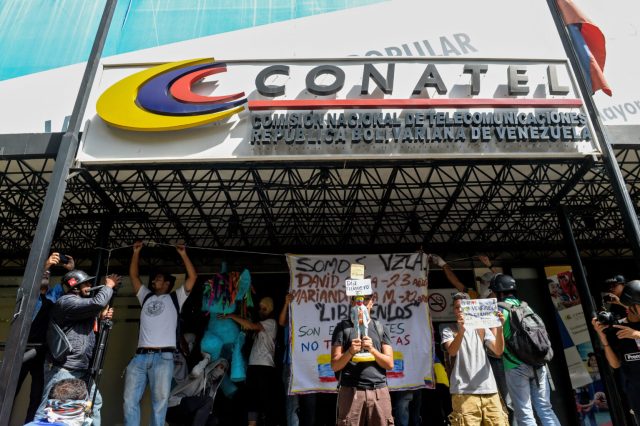
Independent digital media and civil society organizations in Venezuela have joined forces to confront disinformation through the recently created Coalición Informativa C-Informa (Informative Coalition).
By Dialogo Américas
Jan 19, 2023
“Venezuelan citizens are each day becoming more and more victims of disinformation,” whether due to the regime censorship of traditional or digital media, the forced disappearance of dozens of newspapers and radio stations, “or simply because the different power factors want it that way,” C-Informa said in a November 14, 2022 statement. “And this is the main reason [behind the creation] of the Informative Coalition: to make known how certain players in the country are producers, distributors, and spreaders of false, ill-intentioned, or confusing news in order to promote their different interests,” C-Informa added.
Venezuelan organizations Medianálisis, Efecto Cocuyo, El Estímulo, Cazadores de Fake News, and Probox make up the team with the support of the Consortium to Support Independent Journalism in the Region and the advice of Argentine nongovernmental organization (NGO) Chequeado and DataCrítica from México.
Disinformation and self-censorship
“Venezuela has a restricted information ecosystem with closed media and others blocked in the digital sphere,” León Hernández, spokesperson for Venezuelan NGO Medianálisis, told Diálogo. According to Hernández, in addition to taking away radio and television stations’ licenses, the regime fosters self-censorship by prosecuting and harassing journalists.
“In the midst of this dynamic, hoaxes and fake news that circulate in networks, at times created in disinformation laboratories, come into play,” Hernández added.
It is for this reason, according to Hernández, that Venezuelans are going through a “quite complex” disinformation scenario, with “information opacity policies, interruptions to internet service in several regions, and uncertainty regarding several situations, among these COVID-19.”
“We could say that Venezuela lives in ‘fakecracy,’ as there are lies in the public discourse of authorities, which add to the poor access to public information in key matters for citizens, such as public spending and the epidemiological situation,” Hernández said.
Russia’s participation
Venezuela’s disinformation experts also point to Russia’s participation. In its report, Russia and Venezuela, Disinformation Allies, released in October 2022, the NGO Transparencia Venezuela warns that the Venezuelan regime’s communication apparatus has been at the service of Russian propaganda. “In Venezuela, the public system media has been replicating content produced by Russian platforms as a rule,” the report points out.
According to Transparencia Venezuela, news pieces from Russian network RT en Español are regularly used in local news programs, particularly those of state-owned Venezolana de Televisión. RT’s stories and images are also preferred to relay international news events in Venezuelan newscasts, the report says.
Hernández also pointed to Russian influence in Venezuela. “Russia’s situation, which expands ideologically to its allies and spreads disinformation to its opponents, does not exclude the Latin American circle,” he said. “In the country’s social networks, there have been fake news concerning the situation of the Ukraine-Russia clash.” Moreover, Hernández added, the entire flow of information supports the Russian perspective, with state media geared to favor the regime’s policy.
Research
C-Informa began to publish its investigative work on November 15. The works include investigative journalism and dissemination of information in different digital formats to facilitate citizens’ access, the group indicated. “The organizations and media gathered in C-Informa have set out to unravel how the different disinformation machines work in Venezuela,” C-Informa said in a statement. “They will also analyze trends, moments, and news events that are surrounded with disinformation and that, for this reason, may end up affecting the country’s inhabitants in their decision making, perspectives of the country’s situation or ways of giving their opinion.”
…
Read More: Dialogo Américas – Venezuela’s NGOs and Independent Media Unite Against Disinformation
…